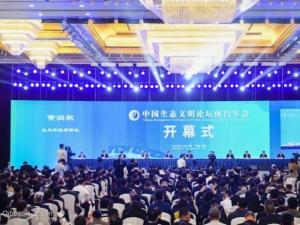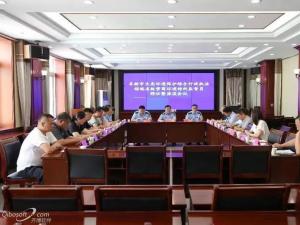Achim Brunnengräber:Socio-Ecological Transformation Towards al Low-Carbon Society
|
Achim Brunnengräber[1] Introduction Dear Excellencies, dear Ladies and Gentlemen. It is a great pleasure for me to be here! Thank you very much for the invitation from the Renmin University of China and the Rosa Luxemburg Foundation, and the opportunity to attend this conference. The issue of the conference is more than important. The world faces a multiple crisis and I think we have to focus all our scientific and societal attention to the complexity and interdependencies of this – let me say – new type of crisis. Otherwise we can`t understand the dynamics behind the complex problems and – what is most considerable - we can´t find solutions. During the next 20 to 25 minutes I would like to take you with me on a time journey – from Rio 1992 to Rio 2012. In 1992 the UN Conference on Environment and Development took place. In June this year the world looked again to Rio de Janeiro / Brasilia. Twenty years later it is obvious: the track is stony and rough. The journey is about hope, positive and negative experiences, success but above all about frustration, unsolved problems and new challenges. And on the track we pass various principals, conception, buss words and scientific terms: Common Multiple Crisis, Common Responsibilities, Global Governance, the State, Green Economy and last but not least – Transformation an Challenges. Before I continue with my thoughts on the journey I have two preliminary remarks to make. First: we should remember the key principle “Common but Differentiated Responsibilities” (CBDR). The Principle 7 of the Rio Declaration provides the first formulation of the CBDR: "In view of the different contributions to global environmental degradation, States have common but differentiated responsibilities. The developed countries acknowledge the responsibility that they bear in the international pursuit of sustainable development in view of the pressures their societies place on the global environment and of the technologies and financial resources they command.“ What are the consequences of that special perspective? Is it sufficient to start with a state centric approach? Or do we need a broader perspective? I come back to this question later. Secondpre-remark: Transformation in my sense is not the same as transition. Transition means for example the way of a society from a dictatorship to democracy, like in many latinamerican countries, or from socialism to capitalism, like the people experienced in East Germany. Great transformation means the global change and remodelling of economy and society towards sustainability. I focus in my speech not on a system change, but on the low carbon and future-proof society! 1.Common Multiple CrisisLet me start with a question: Where we are now? And the answer is not surprising. We are still living in a high carbon society, a society which depends to more than 80 % on fossil energy. The high-carbon path leads to huge risks of potentially catastrophic societal and economic consequences from climate change. There is no doubt that the continued and even increasing CO2-emissions of greenhouse gases change not only the climate of the earth and pose risks to the stability of many natural cycles. This is accompanied by increasing risks for human well-being.As a consequence of the fossil energy orientation the world faces a lot of interlinked problems, which deepens in sum the socio-ecological crisis. Here some recent examples for interlinked problems and for “problem shifting”:
2.Common Responsibilities – different reactionThe loss of biodiversity, climate change or water scarcity are regarded as central problems which humanity has to solve in the ‘century of the environment’.The atmosphere, the biodiversity or the earth are global commons which should be globally protected. Mutual interests in security, economic and social development and global environmental policy are derived from the multiplication of risks which affect all societies.The messages which are based on this perception of the problem are intended to lead to coordinated action. The ‘community of states’ should avoid the serious ecological damage which is being done in the course of rapid and resource-intensive globalization.But such a view of the problem and the way in which it should be dealt with is analytically short of the mark. It implies a uniform definition of the problem and it often assumes that recognition of the problem will lead automatically to structural change and sustainability. The actual problem is much more complex than it appears at first sight. The reactions and development opportunities of societies are not unequivocally determined by ‘nature’. Socio-economic circumstances are also part of the problem. And the scientific uncertainties which exist regarding environmental problems and its effects contribute to this. It is possible to prove with certainty a causal link with regard to the melting of glaciers or the rising of the sea level, but not with regard to droughts or flooding. Environmental problems are therefore part of the communication of society about nature and about what in nature is regarded as worthy of protection and what is to be given over to exploitation. The various approaches to the issues are themselves power-forming discourses, and together with the representation by the media of what is defined as a crisis, they are decisive elements in the perception of environmental problems.The creation of international Regimes or the discourse about “Weltinnenpolitik” follows this reception with focus on top down-approaches, on steering and on market-based instruments. But today this approach is strongly contested. 3.Governance FailureEnvironmental problems and climate change was described as global environmental problem and as the central problem of humanity. This limited the perception of climate change in two ways. First, climate change became a classical, policy field-specific problem, which was to be solved using the tried and tested instruments of environmental policy. Second, the approach to the problem was conceptualised as a top-down strategy in which international relationships were the primary addressee.But this Rio-type of environmentalism failed. The mismatch between the problem structure of a multiple crisis and the institutional approach (stratetic selectivity) is obvious. In Doha governments are taking about emissions, the output-side of our sozio-economic system, not about fossil energy, the input-side. Other governance-players in trade or finance related issues are more powerful: WTO, IMF, WB. Therefor the Rio-Type of environmental governance shows a specific way of dealing with nature which disregards complexities and prefers interpretations that are easy to handle. But nature and society cannot be separated from each other, however, and nature does not exist independently of its societal definition. Therefor it is from most importance what is hidden bygovernance-structures: power relations, hegemonic orientations and institutions are not questioned in the interest of dominant countries and forces. Eliott defines global environmental governance ten years after Rio I as follows: “It is a political practice which simultaneously reflects, constitutes and masks global relations of power and powerlessness. It is neither normatively neutral nor materially benign. In practice, it has come to legitimise a neo-liberal ecopolitics, characterised by a rehabilitation of the state, liberal-individual notions of justice, and a technocratic emphasis on managerialism, standard setting and rules-based behaviour” (Elliott, 2002: 58, H.i.O.). Yet there is a growing recognition that international, “business-as-usual” approaches to solve global environmental problems are insufficient to address the breadth scale and complexity of challenges associated with high carbon society. The OECD “Environmental Outlook to 2050” shows dramatically “The Consequences of Inaction”. 4.Bring the state back inSince ambitious environmental targets have not been achieved, the UN has a weak position in international politics. This has been accompanied by clear tendencies towards a re-nationalisation of the state. Climate policy can more than ever be seen from a realistic perspective as a domain of international relationships in which the states attempt to push only their own interests. As a consequence of the multiple crisis, the international climate negotiations as the central location of environmental multilateralism have decreased in importance (see the results of Copenhagen, Cancún and Durban).The upsurge of the BRIC states – Brazil, Russia, India and China – in the world economy has also considerable consequences for the conflict terrain of environmental policy. Above all, India and China, with 40% of the world’s population, have long since stepped out of the shadow of Europe, Japan and the USA, and are now powerful negotiation partners (Flavin / Gardner 2006). The expansion of the G8 to the G20 in the course of the financial markets crisis is only one political sign of this development, albeit a clear one. The G20 and many other countries are extremely pushing forward the fossil path: Economically mediated geopolitics (off-shore, land grab; exploration of oil in the Antarctic region), new developmentalism (a strong role of the state; „oil socialism“, still world market oriented) or the EU energy system (not commonly regulated) are clear signs of the bigger picture. And we can add China which is until now on the same track based on fossil fuel and the expoitation of nature. The competition in the world is increasing and dependent to a considerable extent on the availability of cheap raw materials, particularly fossil fuels. For the BRIC states it would be disadvantageous – so the argument - if they were unable to use cheap, fossil fuels in the phase of their economic advancement, just as the industrial countries did.This means that the forces in favour of adhering to the fossil energy system and the state’s geo-strategies for the avoidance of resource scarcity must be regarded to a far greater extent than until now as a part of the environmental problem. How does the New World Order look today since the financial market crisis erupted in 2008? At the moment in energy and environmental issues we face a unregulated globalization. And it seemed, that governmental politics alone can´t solve the crisis. There are other actors and coalitions to give the change momentum? A new roadmap is needed. 5.Green EconomyThe Rio-type of politics came to its limits. After 2008 apolicy change occured.Climate protection since the financial market crisis has increasingly no longer been interpreted as a global problem but, rather, as a national economic opportunity (Edenhofer & Stern, 2009). This is particularly clear in connection with the debates on a Green New Deal and the green economy. “The low carbon sector is the only credible growth story over the next few decades. It offers the prospect of intense creativity and innovation which can deliver an attractive and prosperous future not just for Europe, but the world as a hole” (Stern 2012).Rio 2012 highlights this concept – to manage (or solve?) the multiple crisis. The idea: Increasing resource efficiency can reduce pollution and waste, green technologies creats new jobs, strengthens the national competitiveness and ensures green growth. Everyone is supposed to get something out of this. The EU Commission presented in September 2011 a „Roadmap to a Resource Efficient Europe“. A lot of green actors, green capital and green NGOs support this concept. The debate in Europe or within UNEP highlight in this context a new mode of (multi-level) governance, environmental management, a social contract or the transformations of values (normative). But the green economy fits in a dominant trend of the old economy: modernisation and more resource efficiency – not sufficiency - is the main strategy. The concept does not question the dominant patterns of industrial production und mass consumption. Also the world market orientation is not questioned, it is „common interest“. The concern is that the green economy will cement the global economic structures. CBDR was in Rio 2012 not anymore at the agenda! 6.Great Transformation – Current ChallengesTransformation is more than steering the community, industrial innovations, geo-engeneering or market based instruments. The great transformation is not in the first line a technological challenge, an industrial project or a question of management and modernization. It is in the first line a radical, great change of societal-nature relations that they fix in a sustainable “built environment” parallel with a de-growth and de-carbonisation process.We have taken into account differences in time, space, social structures and historical context. What is needed, is not less than other forms of production, consumption and wealth and a “third industrial revolution”, how Jeremy Rifkin points it out. But it is difficult to say, if it happens within the existing system or it is a process of transforming the system. At least it is a long way, because neoliberalism is not over. At the moment we have more core question, than answer related to the great transformation:
7.ChallengesIn my last slide I will illustrate some of the challenges and possibilities. In its flagship report ‘World in Transition – A Social Contract for Sustainability’, the German Advisory Council on Global Change (WBGU) spells out the urgent need for, and the benefits of, transformation towards sustainability:“Normatively, the carbon-based economic model is also an unsustainable situation, as it endangers the climate system’s stability, and therefore the natural life support system for future generations. The transformation towards a low-carbon society is therefore as much an ethical imperative as the abolition of slavery and the condemnation of child labour.” The Advisory Board compares the Transformation with the two great revolutions which have crucially shaped world history: the Neolithic Revolution (the diffusion of arable farming and animal husbandry) and the Industrial Revolution (the transition from an agrarian to an industrial society). But there is no model or theoretical orientation for a new sustainable world. All what we know is, that we can achieve big gains in Europe or in China in the near term through existing technologies that increase energy efficiency and reduce our dependence on ʻdirtyʼfossil fuels, particularly coal. But will this be enough? Surely not: the multiple crisis is deeply embedded in our social life, in our so called western way of life and in our production and consumption patterns. How to transform this? It can´t be organized through a top down-approach, through international politics or world leaders. We have to think about downscaling from the global to the regional and local level. Careful handling and efficient use of natural resources will become a key competence of regionalist sustainable societies But we also have to consider, that socio-ecological conflicts, contradictions and opposition are part of the great transformation. Therefore it is not easy, to overcome the barriers which currently stand in the way of our journey to a low carbon society. The way to a low carbon society is last but not least also a search process, but concrete ways for transformation are possible if the engagement and participation of people is ensured. Few examples:
Imagination and creativity is needed. Thank you very much for Listening und your Attention! |
我来说两句
已有0评论 点击全部查看






